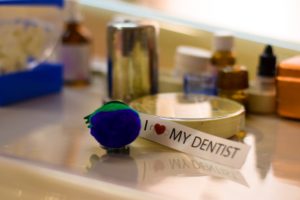There have been significant advances in the field of dentistry, from techniques, healthier materials, and prioritizing the overall well being of the patient. What used to be known as a high anxiety situation is now easy, with minimal stress. In many situations IV sedation can make all the difference for both children and adults. With millions of Americans missing routine dental visits, much needed treatments and restorative care because of anxiety.
Whether it is the sights, smells or sounds, previous bad experience, medical condition, disability, or special needs, IV sedation can help you or a loved one get the oral health care they need.
IV sedation may be the answer, but before you say yes, know what medication will be given to you and make sure someone will be monitoring your vital signs.
 J.P. Abenstein, former president of the American Society of Anesthesiologists told the Hartford Courant, “Ask how your vital signs will be monitored while you’re sedated and who will do the monitoring. In rare cases, sedative drugs cause people to stop breathing, and you want to be sure that someone is monitoring your vital signs at all times and that there’s an emergency plan in place in case something goes wrong. Ideally, the office should have a defibrillator and everyone on the medical team should have training in advanced cardiac life support”
J.P. Abenstein, former president of the American Society of Anesthesiologists told the Hartford Courant, “Ask how your vital signs will be monitored while you’re sedated and who will do the monitoring. In rare cases, sedative drugs cause people to stop breathing, and you want to be sure that someone is monitoring your vital signs at all times and that there’s an emergency plan in place in case something goes wrong. Ideally, the office should have a defibrillator and everyone on the medical team should have training in advanced cardiac life support”
A teacher at the University of British Columbia, Michael Dare, who also operates a private company that trains dentist in emergency care, said that to “have someone tunnel visioning in on surgery while also trying to maintain the breathing of the patient is a disaster waiting to happen.”
Dwayne Thibeault MSN, ARNP, CRNA, has a Doctorate of Nursing Practice (DNP), and is dedicated to giving the best possible care of the patient during and after the dental procedure. To ensure maximum safety and comfort, the patient’s heart beat, blood gasses, and other vital signs are constantly monitored.
This allows the dentist to focus solely on the dental procedure, while the individual attention you receive from a certified nurse anesthetist will vigilantly monitor the patient’s vital signs and regulates the anesthetic.


